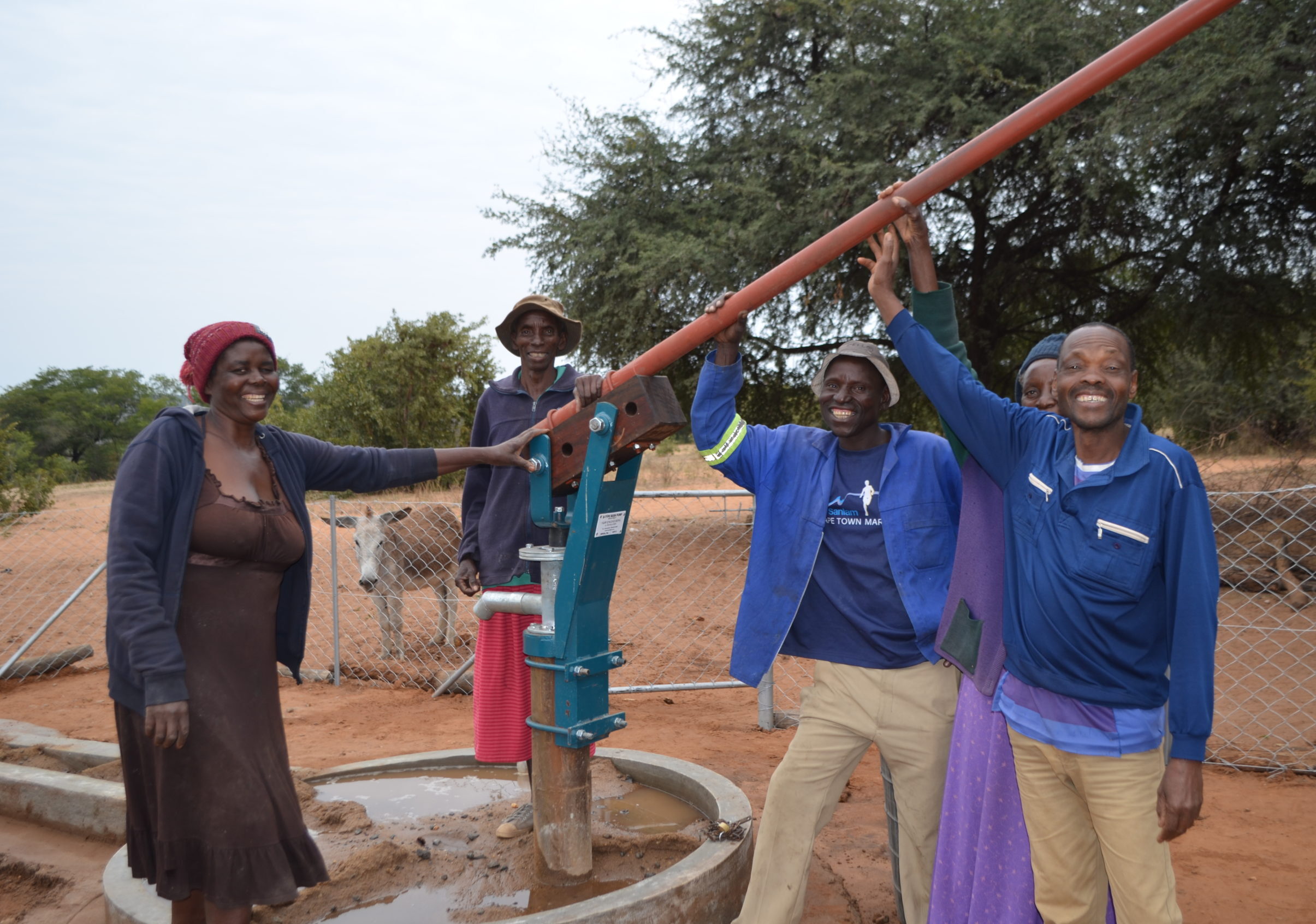Community Visioning Prioritizes Needs and Facilitates a Tangible Sense of Ownership
In Matabeleland North, one of the driest and most food-insecure regions in Zimbabwe, USAID’s Bureau of Humanitarian Assistance (BHA)-funded Amalima Loko activity empowers communities to address and take ownership of their development priorities. In Daluka Village, Ward 19, Lupane, community leader Moven Ngwenya reflects on his community’s experience a year after the village started the Community Visioning (CV) process.
“Amalima Loko set us in motion,” Ngwenya said, whose village’s CV process kicked off in June 2021 with the planning and preparation stage, which involves a series of exercises for communities to identify their existing structures, assets, and formal and informal capacities to inform local transformation plans at the village and ward level. During this stage, communities generate a range of resources, including a socioeconomic map, community resource map, historical timeline, vulnerability matrix, and seasonal calendar for crops and livestock.
“We took part in several discussions on long-term food security and resilience planning,” Ngwenya said of the planning and preparation stage. “We started with resource mapping, during which we were asked questions about how we lived, what we had, and what a thriving community looked like,” he said. “When they asked us what a thriving community would look like, we realized immediately that we were onto something life-changing and that we had taken an important step towards creating something that would provide the community of Daluka with some tangible sense of ownership.”
Ngwenya recalled that during discussions, Amalima Loko staff worked with the CV participants to overcome differences in community priorities. “At first, we had competing needs,” he said. “Some wanted food, others water, while others wanted schools and bridges. We worked with Amalima Loko to rank and prioritize our needs.”
These discussions feed into a cohesive community vision, including goals and actionable steps, with a focus on resilience. In Daluka village, ultimately, community discussions led to the prioritization of water access through drilling and rehabilitation of boreholes that can provide clean water for people and livestock.
“We identified access to water as an important and immediate need,” Ngwenya said. “We concluded with a concrete action plan at the village and ward level, where we now have both short-term and long-term goals that we are striving to achieve in solidarity as a community.”
The Daluka Ward 19 Transformation Plan was finalized in December 2021 and set goals such that by 2030, community members, inclusive of all genders and abilities, will have access to adequate potable water, productive agriculture, market linkages, improved health and nutrition, education, inclusive skills development, natural resources management skills, and recreational services.
Ngwenya’s community is now in the implementation stage of the CV process, where communities take action to achieve the goals outlined in the transformation plans. Accomplishments to date include:
- Ten boreholes in the watershed cluster rehabilitated with Amalima Loko support (two within Daluka Ward).
- Five new boreholes targeted for construction in the watershed cluster (one within Daluka Ward) by Amalima Loko—currently at the solar installation stage.
- One rehabilitated borehole completed by Mafinyela Village through collective action independent of Amalima Loko.
- Gulley reclamation conservation works throughout the ward.
- Rehabilitated feeder roads from Sibangani Village, leading to major health facilities.
“The Community Visioning process under the Amalima Loko program has been a true turning point for the Daluka community,” Ngwenya said. “Amalima Loko came through with a Community Visioning approach which gave us direction and strengthened our voices to determine projects and set the pace at which we wanted this development to happen. I must say this was a welcome initiative.”
Amalima Loko is funded by the USAID Bureau of Humanitarian Assistance and implemented by Cultivating New Frontiers in Agriculture (CNFA). It is designed to improve food and nutrition security for more than 82,800 vulnerable households in rural Zimbabwe through increased food access and sustainable watershed management. The activity’s CV process has reached over 42,000 people of diverse genders, ages, abilities, and social groups in more than 500 villages.





